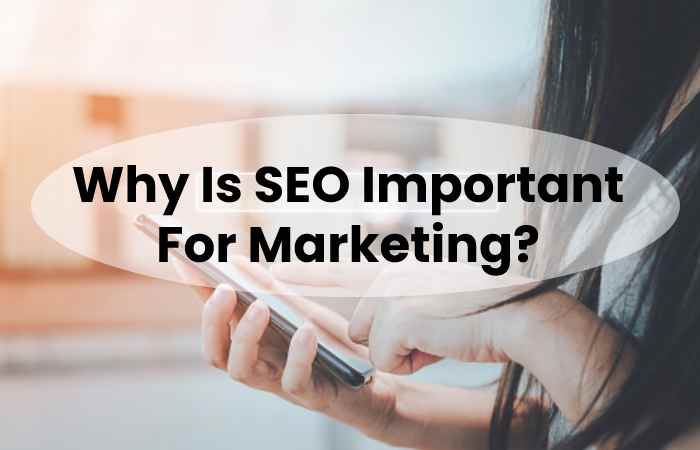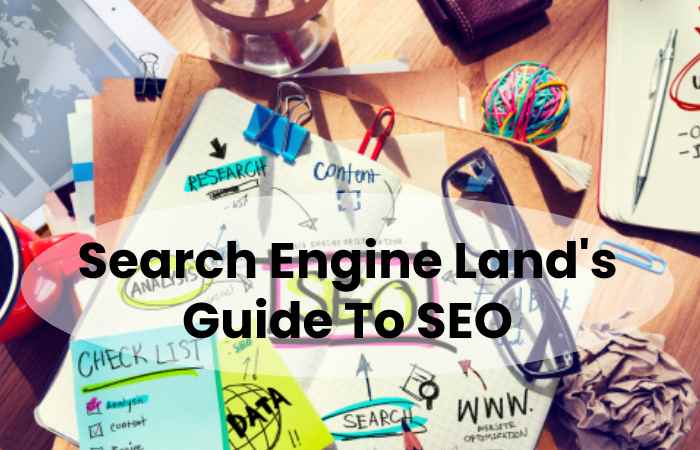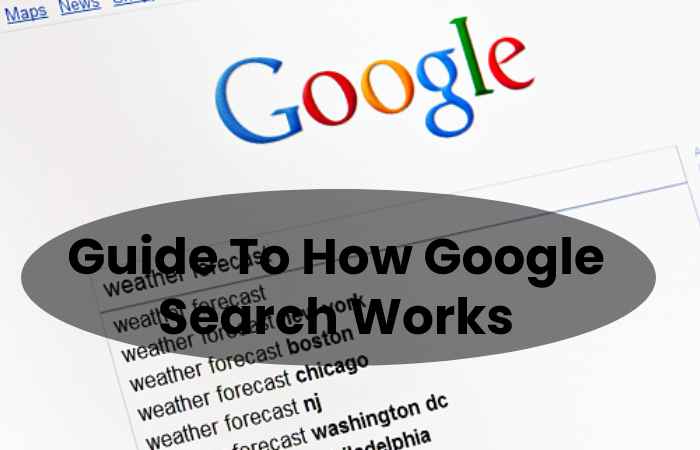SEO
Table of Contents
What Is Search Engine Optimization?
SEO stands for “search engine optimization.” Simply put, it means improving your site to increase visibility when people search for products or services related to your business on Google, Bing, and other search engines. The more perceptibility your pages have in search results, the more likely you will garner attention and attract potential and existing customers to your business.
How Does SEO Work?
Search machines such as Google and Bing use bots to crawl pages on the net, going from site to site, collecting information about those pages and putting them in an index. Think of the index as a giant library where a cataloguer can pull up a book (or a web page) to help you find exactly what you’re looking for at the time.
Next, algorithms examine pages in the index, taking into account hundreds of ranking factors or signals, to determine the order pages must appear in the search results for a given query. The librarian reads every book in our library likeness and can tell you exactly which will answer your questions.
Our SEO success factors can be careful proxies for aspects of the user experience. It’s how search bots estimate just how well a website or web page can stretch the searcher what they’re searching for. Unlike salaried search ads, you can’t pay search engines to get higher organic search rankings, meaning SEO experts have to do the work. That’s where we come in Gadgets
Our Periodic Table of SEO Factors systematizes the factors into six main categories and weights each based on its general importance to SEO. For example, content value and keyword research are critical factors of content optimization, and crawlability and speed are essential sites architecture factors.
Updated SEO Periodic Table
The newly updated SEO Periodic Table also comprises a list of Toxins that detract from SEO best practices. These shortcuts or tricks may have been sufficient to guarantee a high ranking when the engines’ methods were far less sophisticated. And, their strength even works for a short time now — at least until you remain caught.
We’ve also got a brand new Niches unit that deep-dives into the SEO accomplishment factors behind three key niches: Resident SEO, News/Publishing, and Ecommerce SEO. While our overall SEO Periodic Table will assist you with the best practices, knowing the nuances of SEO for each niche can help you succeed in search results for your small business, recipe blog, and online store.
The search algorithms remain designed to surface relevant, authoritative pages and provide users with an efficient search experience. Enhancing your site and content with these aspects in mind can assist your pages in ranking higher in the search results.
Why Is SEO Important For Marketing?
SEO remains a fundamental part of digital marketing since people conduct trillions of searches yearly, often with commercial intent to discover information about products and services. In addition.
Search is typically the primary basis of digital traffic for brands and complements extra marketing channels. Therefore, greater discernibility and ranking higher in search results than your competition can negatively impact your bottom line. But, the search results have been evolving over the past few years to give operators extra direct replies and information.
That is extra probable to preserve users on the results page in its place of heavy them to other websites. Also, structures like rich outcomes and Data Panels in the search results can surge visibility and give users more information about your professional direction in the results.
In sum, SEO is the substance of a holistic marketing ecosystem. When you appreciate what your website users want, you can tool that knowledge across your campaigns (paid and organic), your website, social media properties, and more.
How can I learn SEO?
For a great dive into SEO, our Periodic Table Of SEO Factors will present you with all the key concepts you need to know, counting the elements for successful on-page and off-page SEO, plus the “Toxins” or tactics that can hurt your rankings. The table and supplementary report also look at three niches of Search:
- Local SEO
- Publishing/News SEO
- Ecommerce SEO
The Periodic Table of SE O Factors is the foundation of this Guide to SEO. Together, these resources will benefit you learn about SEO and notify your strategy for success. Write
Search Engine Land’s Guide To SEO
As a friend to our Periodic Table of SEO Issues, Search Engine Land’s Guide To SEO walks you through the basics of optimizing for Search so you can develop a complicated strategy to drive organic traffic to your site.
In the guide below, we clarify these factors in more depth, highlighting tactical tips from experts on search engine optimization that help your website get more visitors from organic Search.
Chapter 1: Types of Exploration Engine Success Factors: These are the on- and off-page issues that touch your search rankings. We’ll also appear at Niche verticals in SEO and then toxic SEO tactics to avoid.
Chapter 2: Content & Search Engine Success Factors: Save these elements in concentration to create high-quality gratifies that search engines and your target audiences will love.
3 Chapter : Site Architecture & Search Engine Achievement Factors: Let’s go behind the scenes and look at the facets of your site that make it easy for search engines to admission and influence user knowledge.
Chapter 4: HTML Code & Search Engine Victory Factors: HTML tags and organized data help establish info on your site and help search engines understand your content.
5 Chapter : Trust, Expert, Expertise & Search Rankings: How your users engage with your site, as well its standing and authority, helps search engines determine if it’s well-intentioned showing to users.
Guide To SEO
Chapter 6: Link Building & Ranking In Search Engines: Why links are still important and what they tell search engines about your content.
7 Chapter : Personalization & Exploration Engine Grades: User-specific elements, such as location and intent, can affect user results.
Chapter 8: Toxins & Search Engine Spam Penalties: Be careful SEO “shortcuts.” Getting fixed using these tactics can result in a manual action penalty or level get your site delisted from the search index.
9 Chapter : Developing Verticals in Search: Voice, local, the image then video search represent new ways for operators to find what they’re looking for. While they each deliver nuanced opportunities for brands, they stand still based on the essential principles of SEO.
Daily SEO News & Expert SEO Advice
In addition to everyday news stories from our editorial staff, Search Engine Land publishes daily articles from skilled contributors that mainly cover SEO issues from an in-the-trenches perspective.
Glance the SEO Channel for the most recent SEO news stories and expert columns. Also, sign up to receive Search Engine Land’s daily email news sheet featuring a roundup of search advertising news and exclusive analysis and insights. www
Search Engine Land’s SEO Library
In addition to covering SEO generally, Search Engine Land also has search engine optimization parts specifically for the major search engines:
- Google SEO
- Bing SEO
- Google Algorithm Updates
- Google Search Console
Who Is This Guide For?
This guide remains if you own, manage, monetize, or promote online content via Google Search. You might stay the owner of a growing and flourishing business, the website owner of a dozen sites, the SEO professional in a web agency or a DIY SEO expert passionate about search mechanics. This guide remains meant for you.
You remain in the right place if you’re interested in having. A complete overview of SEO basics according to our best practices. Of course, this guide won’t provide any secrets. That’ll mechanically rank your site primary in Google (sorry!), but following the best practices will hopefully make. It easier for search trains to crawl, index, and understand your content.
SEO is regularly about making minor modifications to parts of your website. These changes might seem like incremental improvements when viewed individually but combined with other optimizations.
They could noticeably influence your site’s user experience and performance in organic search results. You’re probably already familiar with many of the topics in this guide because they’re essential ingredients for any web page. But you may not be making the most out of them.
Getting Started
Here’s a short lexicon of essential terms used in this guide:
Index – Google supplies all web pages it distinguishes in its index. The index entry for each page describes that page’s content and location (URL). To index remains when Google fetches a page, recites it and improves it to the index. Google indexed several pages on my site today.
Crawl – The process of looking for new or updated web pages. First, Google discovers URLs by following links, reading sitemaps, and other means. Next, Google crawls the web, looking for new pages, then indexes them (when appropriate).
Crawler – Automatic software that crawls (fetches) pages from the web besides indexes them.
Googlebot – The generic term of Google’s crawler. Googlebot crawls the web constantly.
SEO – Search engine optimization: making your site better for search engines. Also, the occupation title of a person who fixes this for a living. We just hired a new SEO to improve our presence on the web.
Do You Need An SEO Expert?
An SEO expert is someone skilled in improving your visibility on search engines. By following this guide, you’ll study enough to be well on your way to an optimized site. In addition, you may need to consider hiring an SEO professional to help you audit your pages.
Hiring an SEO is a big decision that can improve your site and save time. Make sure to research the advantages of hiring an SEO and how careless SEO can damage your site. Many SEOs and different agencies and consultants provide helpful services for website owners, including:
Review Of Your Site Content Or Structure
Technical advice on website growth: for example, hosting, redirects, error pages, use of JavaScript
- Content development
- Management of online business growth campaigns
- Keyword research
- [SEO] training
- Expertise in specific markets and geographies
Guide To How Google Search Works
Google Search remains a fully automated search engine that uses software known as web crawlers. That explore the web frequently to find pages to add to our index. As a result, most pages in our results aren’t manually submitted for inclusion. But are found and added automatically when our web crawlers explore the web.
This document explains the steps of how Search works in the context of your website. Having this base knowledge can help you fix crawling issues. Get your pages indexed, and learn how to optimize how your site appears in Google Search.
How Much Of This Guide Do I Need To Read?
If you’re serious about refining search traffic and are unfamiliar with SEO, we endorse reading the Beginner’s Guide to [SEO] front-to-back. We’ve strained to make it as concise and easy to understand as possible, and learning the basics of [SEO] is a vital first step in achieving your online business goals.
Go through at the pace that suits you best, and be sure to take note of the dozens of resources. We link to throughout the chapters — they’re also worthy of your attention. We’ve consolidated all the help you need to learn [SEO] fundamentals alongside unique learning strategies, task lessons and quizzes to test your knowledge. You can also display your expertise with your Linkedin [SEO] Essentials certification badge.
Are you getting excited yet? You should be! Search engine marketing is a fascinating field and can be lots of fun! But, if you get disordered, don’t give up. We have folks who can help you with instructor-led [SEO] training seminars.
Conclusion:
No one factor is most important because they’re all important. If I had to pick something you should focus on, it would be providing quality information to people. You can have all the [SEO] pieces in place, but if your content isn’t good, it doesn’t matter because people won’t be interested in you.
Also read: Merchant And Trade – Menu, Contact And More

